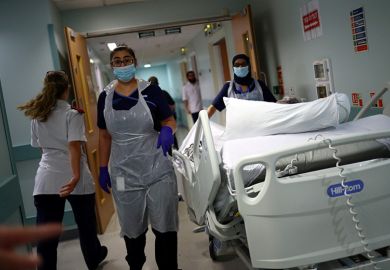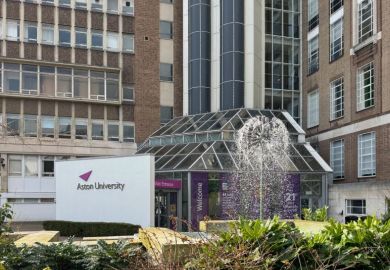Source: PA
George Freeman, Minister for Life Sciences
Splitting responsibility for science and research between two government ministers would be “completely bonkers”, a policy expert has said following the creation of a new life sciences ministerial post.
Kieron Flanagan, lecturer in science and technology policy at the Manchester Business School, University of Manchester, said that he would be “astonished” if the government had actually split the portfolio, adding that in his view it was “just politics”.
A ministerial reshuffle on 15 July saw George Freeman, MP for Mid Norfolk, given the new role of life sciences minister. Mr Freeman served as life sciences adviser to ex-science and universities minister David Willetts from 2011 to 2013.
During this time, he helped to develop the government’s life sciences strategy. Many have speculated that his new appointment is to strengthen and oversee this initiative.
Dr Flanagan said that his guess was that the new role was “a formalisation” of work that Mr Freeman had done previously. “[I] just cannot imagine [Prime Minister David] Cameron and his advisers sitting up late into the night with their whiteboard and Post-it [notes] pondering the proper organisation of science responsibilities,” he said.
“I would be astonished if it actually involved splitting the science portfolio. Obviously that would be completely bonkers,” he said.
“The quality of the individuals involved, and how they choose to interpret the roles they hold, is much more important than the formal configuration.”
Sarah Main, director of the Campaign for Science and Engineering, said that it was difficult to comment on the significance of the development at this early stage.
But she said that there were still outstanding questions about how the life sciences minister will work with the new science and universities minister, Greg Clark. The line of authority between the two ministers is not yet clear, nor is it clear whether the life sciences minister will be responsible for a portion of the science budget, said Dr Main.
Mr Freeman’s role will also span both the Department for Business, Innovation and Skills and the Department of Health.
Sir John Tooke, president of the Academy of Medical Sciences, said that this is a “potential strength” as the life sciences ecosystem requires integration and investment from both departments.
He emphasised the need for Mr Freeman to work closely with Mr Clark to overcome any challenges if there had been a separation of the life sciences from the rest of the science brief.
He also warned Mr Freeman to sustain investment in existing laboratories after the current consultation on where future capital spending should go. This is “far less sexy” but “very necessary if we are going to retain our [life sciences] capabilities”, he added.
In a statement on his website, Mr Freeman said that building on his previous work on the life sciences in a ministerial post is a “huge opportunity to show how our world-leading science base and pioneering work in healthcare technology can make the UK the global hub for medical innovation and patient empowerment”.
Register to continue
Why register?
- Registration is free and only takes a moment
- Once registered, you can read 3 articles a month
- Sign up for our newsletter
Subscribe
Or subscribe for unlimited access to:
- Unlimited access to news, views, insights & reviews
- Digital editions
- Digital access to THE’s university and college rankings analysis
Already registered or a current subscriber?





